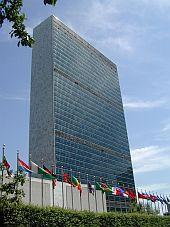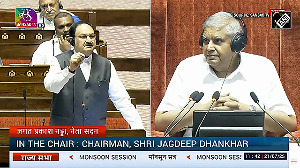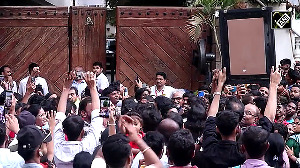 The hanging of 26/11 terrorist Ajmal Kasab in a Pune jail comes a day after India opposed a UN General Assembly draft resolution which sought abolition of the death penalty, with New Delhi arguing that capital punishment in India is exercised in case of a crime so heinous that it "shocks" the conscience of society.
The hanging of 26/11 terrorist Ajmal Kasab in a Pune jail comes a day after India opposed a UN General Assembly draft resolution which sought abolition of the death penalty, with New Delhi arguing that capital punishment in India is exercised in case of a crime so heinous that it "shocks" the conscience of society.
Kasab, the lone surviving terrorist, had along with 9 other Pakistani gunmen killed over 160 people in Mumbai in November 2008 in one of the worst terrorist attacks in Indian history.
Kasab's hanging in Pune's Yerawada jail on early Wednesday morning was shrouded in complete secrecy.
A day before, India had opposed the non-binding General Assembly resolution which had called for a moratorium on executions with a view to abolishing the death penalty.
India was among the 39 countries that had opposed the resolution, which was adopted after 110 nations voted in its favour.
In opposing the resolution, Counsellor Amit Kumar from the Indian mission to the UN here said each state has the right to determine its legal system and to punish criminals as per its laws.
"In India, the death penalty is exercised in the 'rarest of rare' cases, where the crime committed is so heinous as to shock the conscience of society. Indian law provides for all requisite procedural safeguards, including the right to a fair hearing by an independent Court, the presumption of innocence, the minimum guarantees for the defence, and the right to review by a higher Court," Kumar said.
He added that death sentences in India need to be confirmed by a superior court and an accused has the right to appeal to a High Court or the Supreme Court.
"The President of India in all cases, and the Governors of States under their respective jurisdictions, have the power to grant pardons, reprieves, respites or remissions of punishment or to suspend, remit or commute the sentence of any person convicted of any offence," Kumar said.
India said it would vote against the draft resolution "as it goes against our statutory law".
Kasab's mercy petition was rejected by Indian President Pranab Mukherjee following which the Pakistani national was transferred from a jail in Mumbai to Pune.









